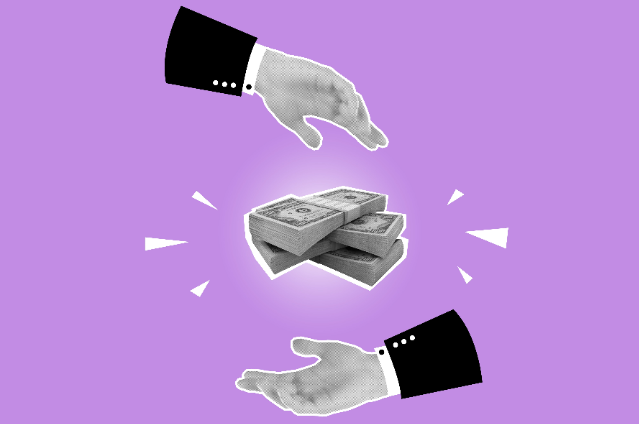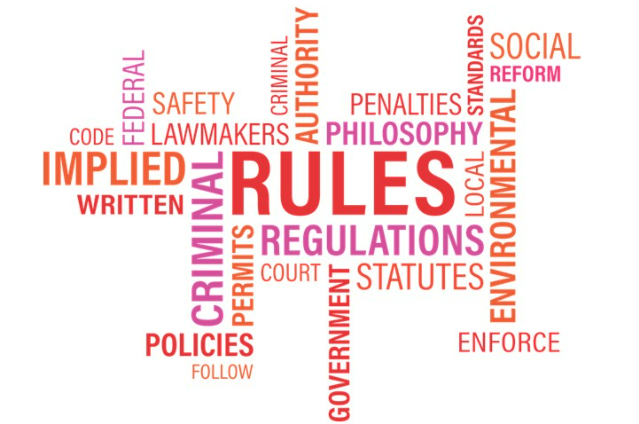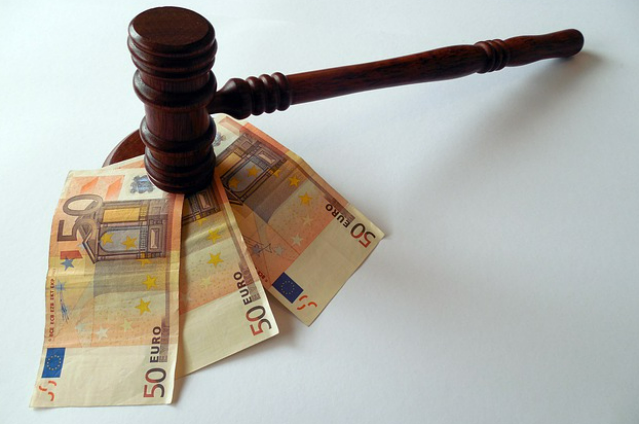
"Nearly all men can face adversity but if you want to test a man's character give him power."
These are the words of one of the greatest leaders of all times, a philanthropist, the person known for his exemplary contribution in abolishing slavery, the 16th U.S President Abraham Lincoln. The visionary man foresaw the advancing evil and it's powerful claws gripping mankind. He said,
"I see in the near future a crisis approaching that unnerves me and cause me to tremble for the safety of my country, corporations have been enthroned, an era of corruption in high places will follow and the money power of the country is aggregated in a few hands and the republic is destroyed".Before we unearth the topic, it is imperative to understand the meaning of the much publicised term CORRUPTION. The definition of corruption can be highly varied and it requires restructuring from time to time as new ways of corruption are being discovered. The World Bank describes corruption as "The misuse of entrusted power for personal benefits."This doesn't signify that corruption exists only in public enterprises, it does exist in larger private ventures too! It is basically any unethical activity done to satisfy one's own greed at the cost of serving the societal interests.
There is a gradual spate observed since nearly three decades where corruption has established it's firm root all across the globe. According to the International Chamber of Commerce and other agencies "Estimates show that the cost of corruption equals more than 5% of global GDP i.e gross domestic product (2.6 trillion US dollars) with over 1 trillion US dollars paid in bribes each year". Looking at the global scenario, corruption has grabbed a great deal of attention worldwide. In countries like South Sudan, Somalia, and others across the African continent, misuse of public funds, bribery, and extortion have become so ubiquitous as if it isn't a crime!
In consonance with the recent survey conducted by the Transparency International Organization, solely devoted in combating global corruption, a report widely known as Corruption Perception Index was published in the year 2020. The year considered as one of the worst years in world history had extremely devastating effects on economy and democracy. As the world continues to battle the unprecedented situation, in the face of COVID 19 pandemic, corruption intensified the aftermath of the Universal crisis. The report claims that most countries have made no progress in tackling corruption since past ten years, and the pandemic has further deteriorated the condition.
Looking at the domestic scene, agonizes us further. According to the study, India ranks 86 out of 180 surveyed countries and is Asia's most corrupt nation recording highest bribery rate i.e constituting most number of people who misemploy their wealth for accessing public powers. As the nation is witnessing the biggest crisis in history, it is unfortunate that corruption has contributed heavily in undermining the country's effective and equitable response to emergency situations. The major issue observed was no transparency in providing health care services and other basic resources to the people. The large sums of money spent on dealing with the emergency never reached the beneficiary, as there is a huge chain of middlemen greasing their palms before serving the needy. Thousands of people largely the poor were gravely struck by the rampant outbreak and struggled for getting affordable treatment resulting in serious casualties, thereby putting a huge question mark on the integrity and accountability of the state to its people, during a crisis. According to the UN office on drugs and crime (UNODC), approximately 10 to 25% of all money spent on procurement globally is lost to corruption.
Factors promoting corruption

- Inefficient administrative structures and political corruption - Post independence, several political heads have shown up and ruled the country. Time and again they have been questioned on their loyalty towards the country and its citizens. Our former prime minister Mr.Rajiv Gandhi remarked that "Out of every rupee spent by the government for the deprived, only fifteen paise actually reaches those for whom it is meant" when he enquired about the Bofors scam. Thereafter, several episodes of scam cases like the 2G scam, the Delhi power scam, alleged Maharashtra irrigation scam in which notable politicians have been held responsible, have come under public attention, but sadly, the investigation remains inconclusive for years.
- The current government vows to create a corruption-free nation and steps like demonetisation in an urgency to dig out black money haven't turned fruitful and resulted in hardships for the common people. The promotion of digitalization in order to reduce the intermediaries between the lawmakers and the law abiders has definitely cut down the corruption to an extent but there's still a long way to go in achieving complete transparency in public forums.
- Bribing and forcing people in order to create a vote bank and filling their own pockets when in power reveals the hypocrisy of the politicians owing to which the poor and beneficiary remain at the receiving end.
"There is no more dangerous menace to civilization than a government of incompetent corrupt vile men."
- Socio-economic inequalities: The huge chasm between the rich and poor, creates a vulnerable situation thus justifying the act of corruption, as the rich finds it easy to offer a bribe whereas the poor fails to refuse the handful sum which might be greater than their monthly earnings, thereby leading to the gradual erosion of morality and ethical notions, and the chances of the evil rearing up its ugly head become higher.
- Tolerating the corrupt: The real measure of Corruption is actually the visible degree of its tolerance by citizens. The complex and unclear rules and regulations often push the person into this vicious cycle. Further, the loopholes in the enactment of government policies and incompetent laws for punishing the guilty, give room to illegal activities. Whether applying for a Driving license or a passport, owning a shop or a house or a vehicle, or even during traveling on a train, it has become mandatory to line their pockets with money else they would refuse to give authorisation or may prolong it for no reason. The exploitation of poor farmers by the lekhpals is noteworthy. The Right to Information Act(2005), enacted to curb corruption and to provide citizens, with the authority to question the country keepers, also failed to address grievances of the public satisfactorily.
- Another malpractice prevalent is the misrepresentation of actual income in order to escape tax payment, considered a serious offence, but is quite common amongst people.

- Favouritism/Nepotism: Preference given to one person at the expense of another i.e discretion of powers, is widely noted in educational institutions, in alloting jobs, and sometimes even in competitive examinations.
- The lower wages in public sectors and the insatiable thirst for money and comforts compels them to indulge in all sorts of unlawful deeds.
Governmental Measures

- Global initiative by the United Nations Sustainable Development Goal 16 targets a substantial reduction in corruption and bribery and the development of effective accountable and transparent institutions.
- The Prevention of Corruption Act came into force in 1988 with the aim of combating corruption in a governmental organisation. It was amended in 2018 in accordance with the United Nations Convention against Corruption 2005 which considers bribery( both giving and taking)as a criminal offence.
- In addition to this, the Parliament of India passed The Black Money and Imposition of tax bill 2015 with the aim to reduce the hoarding of black money and penalize the guilty.
- The country needs many more laws and their effective enforcement that guarantees transparency in the system as well as in the redressal of public grievances.
Some practical solutions

- As It is said that" You must be the change you wish to see in the world" so for eroding this evil from its root, each of us has the responsibility to be integral towards ourselves and to our nation. We cannot blame the government or the system unless we are unlawfully involved and even if we continue tolerating exploitation.
- Stringent enforcement of laws: The laws enacted by the government should not merely be lip service. Often, it is seen that the laws are broken and indistinct and justice favours the highest bidder, leaving even the toughest laws worthless. So the need of the hour is strict implementation of the legislation.
- Media, which shoulders the responsibility of efficient communication between the policymakers and the common people of the country, is often corrupt themselves and is bribed by the elite class, to work in their favour. It is high time, the Media should exercise its powers for the benefit of society and not just for the publicity of the rich.
- Efficient Monitoring of Malpractices: The need for strong public forums is mandatory to ensure proper monitoring. For this, anti-corruption centers should be established in each district where complaints regarding injustice can be done by anyone, the regulation of which should be directly handled by the highest authority of the country in order to maintain confidentiality and eliminate the middlemen. This can ensure transparency while also keeping in view, the interests of the public.
- Illiteracy and lack of awareness have always been a hindrance in economic prosperity and eradication of the immorality from the country. It is therefore imperative that the citizens are cognizant of the rights and powers in a democratic state and should make efficient use of it.
We Indians, since times immemorial, have battled with some of the greatest social evils like Sati Pratha, Slavery and have uprooted it completely. This was made possible when the people revolted and joined hands with the leaders who led them righteously. The need of the hour is the enthusiasm and devotion both among the citizens and the representatives, in abolishing the evil to make our country a better place to live in.
. . .
REFERENCES:
